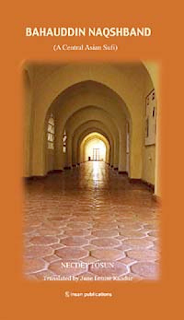Bahauddin Naqshband: A Central Asian Sufi : Necdet Tosun
Bahauddin Naqshband of Bukhara, known as the reviver of the Khwajagan school, is one of the most eminent Sufi figures of the 14th century. After Bahauddin Naqshband s time, this school later came to be known as the Naqshbandiyya order which has now spread throughout the entire Islamic world. Since then, the Sufi views of Bahauddin Naqshband and the Naqshbandiyya order have functioned as an elaborate part of the fabric of Muslims' lives, both on material and spiritual planes. This book is a humble contribution to the history of Sufism as an introduction to the life of this great historical figure, Bahauddin Naqshband, his life, his Sufi views, and history of the Naqshbandiyya order.
About the Author
Necdet Tosun (Ph.D., Marmara University, 2002) is Associate Professor of Sufism at Marmara University in Istanbul, Turkey. He has published works on Ottoman, Central Asian and Indian Sufism.
PDF: Teaching Sufism: Ideas of Bahauddin Nakshbandi and its activity in Modern Uzbekistan : Mukhitdinova Abdurashidovna, Agzamkhadjaeva Sabithanovna, Berdikulova Aslamovna, Shahobjon Kubatov
Abstract: The article discusses the ideas of Bahauddin Naqshbandi, who is one of the main theorists of Sufism, analyzes the provisions of the moral teachings of Sufism, and the authors examined and analyzed cognitive and mystical values and teachings of Eastern thinkers from new perspectives.
posted by NFIE @ 7:26 PM
0 Comments
![]()









